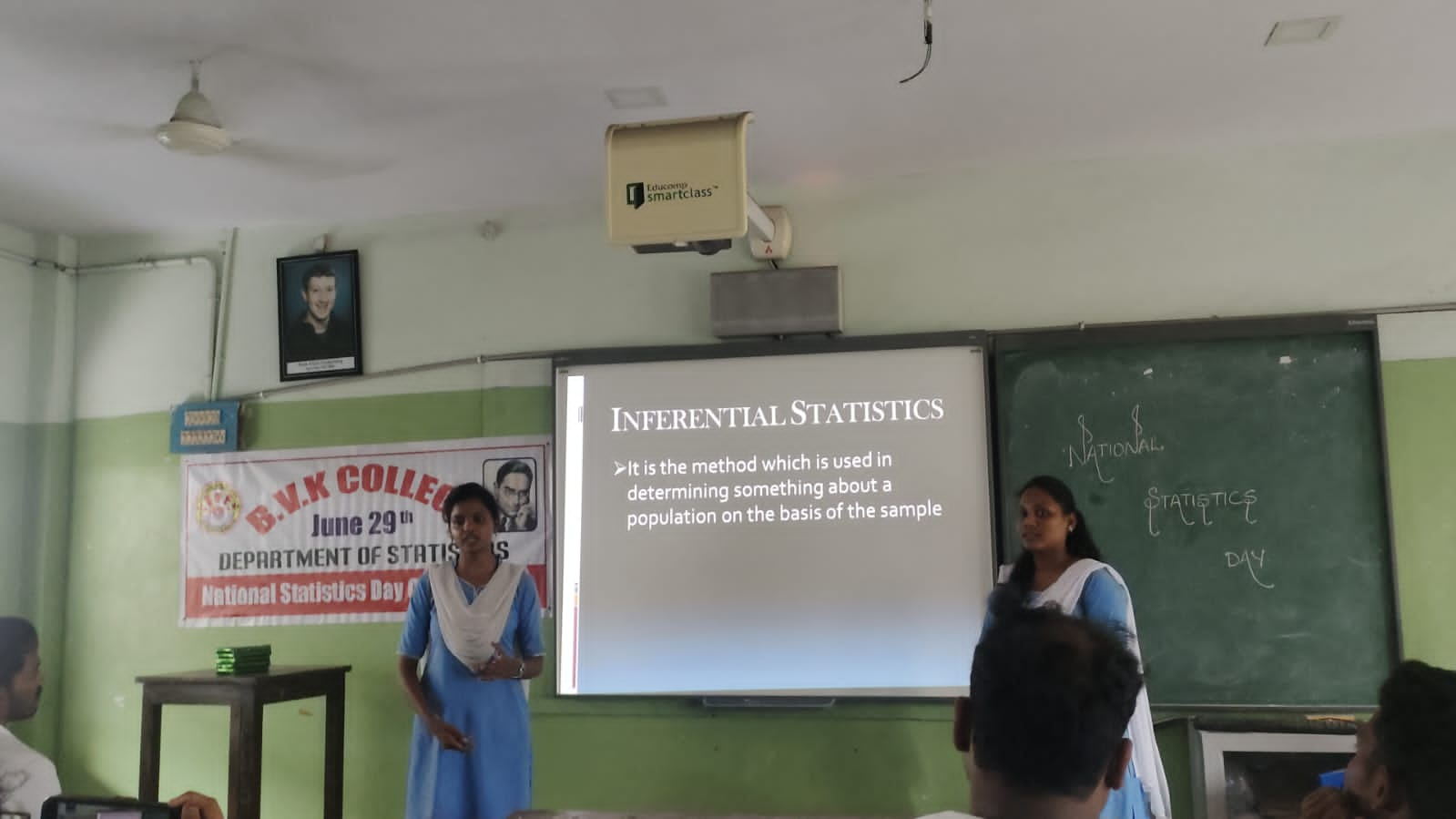BSc Statistics Overview
BSc Statistics is a discipline that focuses on gathering, organizing, analyzing, interpreting, and presenting data. It is a sub-set of mathematics that offers specialization in statistics and excellent job opportunities in the government and private sectors.
The way to pursue a career with BSc in Statistics
BSc statistics is a three years degree course that opens a wide range of job and business opportunities such as data analysts, statistical officers and many others. Content analysis is an exciting option to optimise the demand for statistical knowledge and trending content types among various job opportunities. Apart from this, anyone can also become a Subject Expert in Statistics at Chegg India and earn a good side income by just simply registering for either Q&A or TBS opportunities to become a Chegg expert.
Best Career Option for BSc Statistics
BSc Statistics is a three years degree program. This course aims to teach statistical probability and the interpretation of mathematical data. As a result, this course’s curriculum thoroughly examines probability and statistical methods, survey sampling, and numerical analysis. Although it is a full-time program, students can acquire a BSc in statistics through remote learning.
The eligibility criteria for a BSc in statistics are below:
- Qualifying exam i.e. 12th or equivalent diploma course from any recognized board
- Candidates must have held at least 50% of the qualifying exam
- Mathematics must be the main subject in the qualifying exam
- Banaras Hindu University- BHUET
- ndian Institute of Science Education & Research- IISER-ET
- Gandhi Institute of Technology – GSAT
- Central University Entrance Test- CUET
Many colleges and universities in India conduct entrance exams for admission to this course. Some of such institutes and their tests are given below
There are various specialization courses in B.Sc. in Statistics. However, an aspirant for a degree in statistics can be admitted to the following courses
Decision Analytics
This course is structured around the foundations of contemporary data analytics. However, this course offers an insightful analysis of facts to deal with complex situations and decision-making. The course covers theoretical as well as applied modern statistics.
Data Science
This degree gives instruction and hands-on experience in modelling, analyzing, and interpreting real data needed in the economy, business, and research. It also covers the theoretical and applied aspects of contemporary statistics. The first two years of the degree program address fundamental statistics, probability, and mathematics
Statistics and Applied Mathematics
This course is designed based on mathematics and reasoning to solve a real-world problem of a scientific or decision-making nature. It supports students in becoming self-sufficient scholars ready for successful careers in academia, business, and research.
Quantitative Finance
Quantitative finance is an approach that uses computer programming to apply the fields of mathematics, statistics, scientific computing, and finance to financial trading and investing operations. However, the course provides the opportunity to become a quantitative analyst
Bioinformatics
A bachelor’s degree program in bioinformatics, or the science of gathering and analyzing complex biological data, such as genetic codes, is available. It is an area where organism biology, molecular biology, and biomedicine employ the interface between biology, computation, and statistics.
Computational Biology
The study of biology covers a wide range of medical topics, including the anatomy of the human body, cellular processes, and the treatment of diseases. Computational Biology is concerned with resolving complicated biological and biomedical problems using mathematical and computational techniques
Financial Mathematics
BSc in financial mathematics is an honours degree program that allows working in banking and commerce. This course builds mathematical abilities; concerning this, the curriculum covers applying mathematical principles to financial problems.
Statistical Biology
Biostatics is a discipline that builds the ability to use statistics in biology. BSc in Statistical Biology is a three years honours degree program in this regard. However, the curriculum of this course covers a wide range of statistical as well as mathematical methods and their application in biology.
The BSc Statistics scope is vast and provides various job opportunities in the government and private sectors. However, there are many job opportunities that are extensively in trend
Statistician
A statistician is a person who is in charge of using theoretical or applied statistics to provide the best results. High responsibility and constant demand characterize this position in the public and private sectors. To address real-world problems, statisticians employ statistical models and approaches. They collect data, analyse it, and interpret it to aid several commercial decision-making processes. The average salary of a statistician is 5.8 LPA.
Market Research Analyst
A marketing analyst is an expert who analyses data supporting a business’s marketing. This expert plays a vital role in decision-making for organizational betterment, such as boosting sales or streamlining marketing initiatives with the information they discover. The average salary of a market researcher analyst is 4.2 LPA.
Technical Writer
There is an opportunity for a candidate to become a technical content writer after having a statistics degree. Every government agency, as well as the business sector, needs writers who are skilled at both creative writing and data analysis presentations. A degree in statistics plays a key role in it. The average salary of a technical writer is 6.9 LPA.
Consultant
A candidate can also become a data consultant after a bachelor’s of statistics and can play a vital role in decision-making for an organization. The knowledge of statistics plays a vital role for a consultant to perform surveys and conclude the sampled data using various statistical methods. A consultant earns on an average 13.4 lakhs per annum.
Biostatistician
There is an opportunity for a bachelor in statistics to join the healthcare sector as a biostatistician. The job responsibility of a biostatistician is to conduct studies, create plans, analyze outcomes, and collaborate with a group of scientists and researchers. The average salary of a biostatistician is 5.7 LPA.
Content Analyst
Data from print media, web content, translations, product descriptions, and advertising copy are all evaluated and interpreted by content analysts. A content analyst analyses the trend and suggests the themes and tone of the article to release. The average salary of a content analyst is 4 LPA.
Research Associate
A researcher who conducts research is typically a research associate. The researcher associated with the research department of any organisation, including the government, analyses the data and contributes creative ideas for the advancement of the organisation. In addition to being essential to research, statistics offers the chance to work as a research associate and earn a sizable salary. A research associate earns on an average 4.5 LPA.
Data Analyst
BSc statistics opens a wide range of career opportunities, including data analysis. Data analysts are crucial in an organization and advise management and stakeholders. A data analyst’s primary responsibility is to study the data and identify the vital information that could be useful to the organization. The average salary of a data analyst is 6 LPA.
Financial Analyst
Usually, financial analysts work in banks, financial institutions and finance departments. They advise companies, the government and people on how to spend money to make a profit. They evaluate the performance of bonds, equities, and other financial products. The average salary of a finanicial analyst is 5.8 LPA.
Analyst Broking
The stock market is one of the best opportunities for statistics graduates to make a career in this stream. There are various stock trading companies searching for the best analyst who can analyze the data very well and provide the best facts for clients and company’s betterment. An analyst broker earns around 6.1 lakhs per annum on an average
Accountant
Every industry’s account department is founded on data. Additionally, statistics play a challenging role in this field. So, after earning a degree in statistics, a candidate can also work as an accountant. The average salary of an accountant is 3.3 LPA.
Even though a candidate can have a successful career after earning a BSc in statistics, if they wish to continue their studies, there are also chances for higher studies.
Below mentions are the details of higher studies after BSc Statistics
MSc Statistics
It is a two years master’s degree program. A candidate willing to pursue higher studies after BSc in statistics can be admitted to this post-graduate degree program in Statistics. MSc in Statistics facilitates scholars to get in-depth knowledge of the subject and enhances data analytical skills. A candidate must have possessed 55% in his graduation to be admitted to this course.
MSc Actuarial science
The MSc in Actuarial Science is a two years master’s degree course. It is a multidisciplinary curriculum that uses qualitative and quantitative (mathematical and statistical) methodologies to assess and analyze various risks in both financial and non-financial sectors, such as the banking and insurance industries. A graduate of statistics can also pursue his higher studies through this course. Admission to this course, however, has certain eligibility criteria to fulfil first.
MBA
A Master in Business Administration is a two-year degree program, and a bachelor of statistics can also pursue his higher education with this professional course. MBA is one kind of professional degree where the candidate has to choose one discipline like finance, marketing, data science etc. Even though there are many top MBA colleges in India, IIM is the top, which takes admission through CAT only. So to pursue an MBA the candidate has to qualify for the entrance exam along with graduation.
Master in Statistics
A Master’s in applied statistics is one of the most tremendous courses after a BSc in statistics. It is a two years degree program that develops mathematical and analytical skills to interpret the data and conclude the best result.
PGDBM course
It is a two years post-graduate diploma course considered equivalent to a master‘s degree program. A statistics graduate can pursue a PGDBM instead of an MSc or MBA. This course is ideally less expensive; meanwhile, pursuant can earn by working in any organization.



